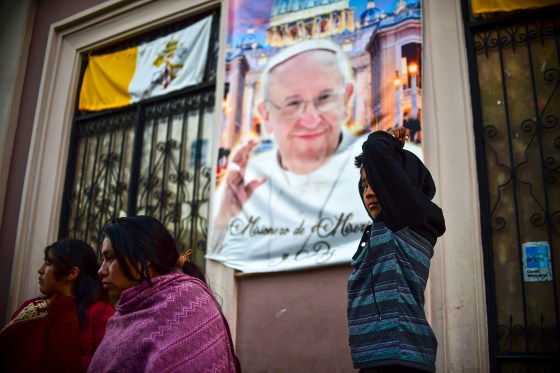Elisabeth Román said she'll never forget where she was on March 13, 2013, the day that Cardinal Jorge Mario Bergoglio of Buenos Aires, Argentina, was elected pope.
“I was in a restaurant in Puerto Rico, and it came on the TV that we might have a Latino pope,” said Román, who lives in Chicago and is the president of the National Catholic Council for Hispanic Ministry, which promotes the advancement and engagement of Latino Catholics. "It was so exciting, it felt electric — things felt so hopeful, that we would finally have a pope who comes from our culture.”
Assessing his legacy, Román said that “not only has this pope connected with Latinos, it often felt as if he did so directly; he has not seemed as impeded by bureaucracy as other popes — he speaks directly to us, he sees us, he had an impact on our people that is powerful.”
The 266th Roman Catholic pontiff, known to the world as Pope Francis, died Monday at age 88. The first pope from the Americas, he forged bonds of faith and connection with millions of Latino Catholics across the United States and Latin America.
Román was one of several U.S. Catholics who recently spoke to NBC News after Pope Francis was hospitalized for serious health issues in late February.
'A pope of the people'
One in 5 U.S. adults describe themselves as Catholic and of these, over a third (36%) are Latino, according to a 2024 Pew Research Center report.
Just as many Polish Americans felt a special affinity with John Paul II, so it was with Latinos and Pope Francis, said Hosffman Ospino, professor of Hispanic Ministry and Religious Education at Boston College.
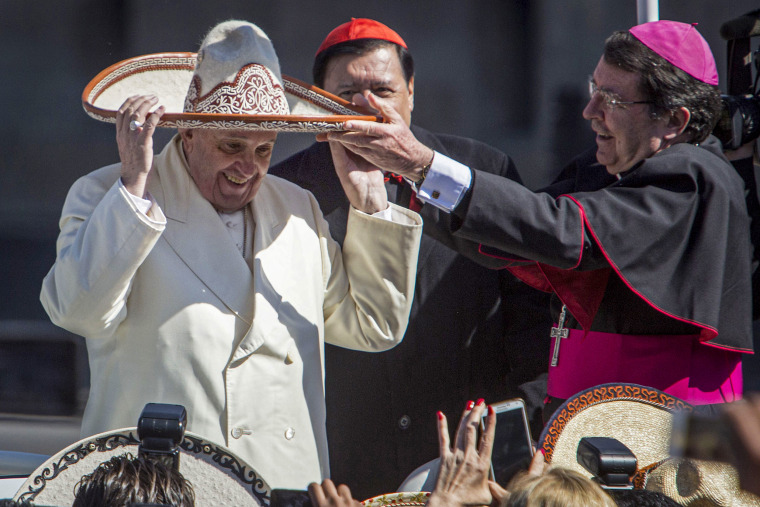
“He has been able to name many of the realities, concerns, and hopes of Hispanic Catholics in the U.S.,” said Ospino, a native of Colombia. “He addressed issues related to immigration, to social justice, assimilation and evangelization — he was very intentionally attentive to how Hispanics are integrated into the life of the church.”
Olga Sarabia, a retired clinical social worker in Pasadena, California, said her parish had joined others around the globe since late February in special prayers for Francis.
“We were all concerned about our papa," she said, using the Spanish word for pope.
“I loved him because he displayed an openness to all people. ... He elevated women, like he appointed a nun to a high office in the Vatican, which is unheard of," Sarabia said. "I remember, when he first came in, he went and washed the feet of the prisoners in jail. This showed his character. He was a pope of the people.”
From his love of soccer — though he called himself a “patadura,” or bad soccer player — to his native Spanish language, the Argentine pope endeared himself to many who identified with his cultural heritage, warmth and compassion.
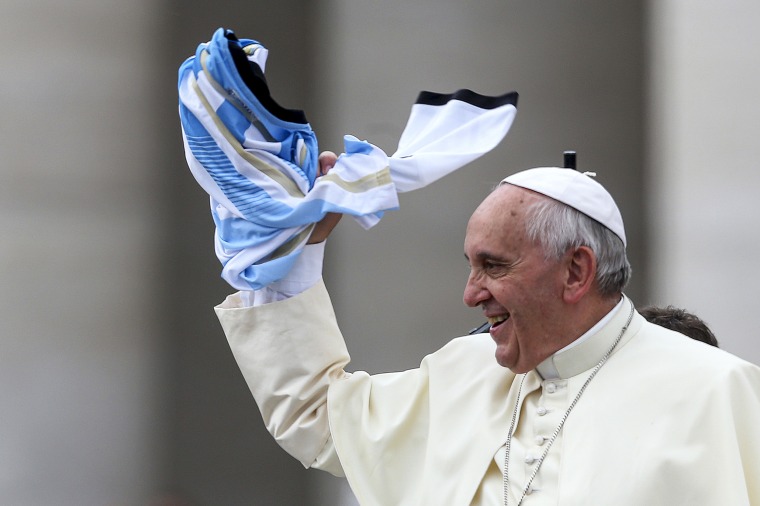
Acknowledging the traditions of Latino Catholics; he urged Mexicans last year to continue their devotion to Our Lady of Guadalupe, the Catholic saint and icon that's a powerful symbol of Mexican identity.
In 2022, he celebrated a Mass in Spanish at the Vatican, where he said that Our Lady of Guadalupe “came to accompany the American people on this hard road of poverty, exploitation, socioeconomic and cultural colonialism” and that “she is our mother of mixed race.”
Pope Francis had two consistent messages, both of which resonated with many of his Hispanic followers, Ospino said. “One was his concern for those living in poverty; the poor have been at the center of his pontificate. He invited Catholics to be part of a church that was in service of the poor.”
“His second message, right from Day 1, was the plight of immigrants,” Ospino continued. “Francis was keen to the realities and struggles of immigrants in Europe, the Caribbean, the U.S. and Latin America. He will be remembered as the pope who brought and centered our attention on those who were poor, and on the migrant populations of the world.”
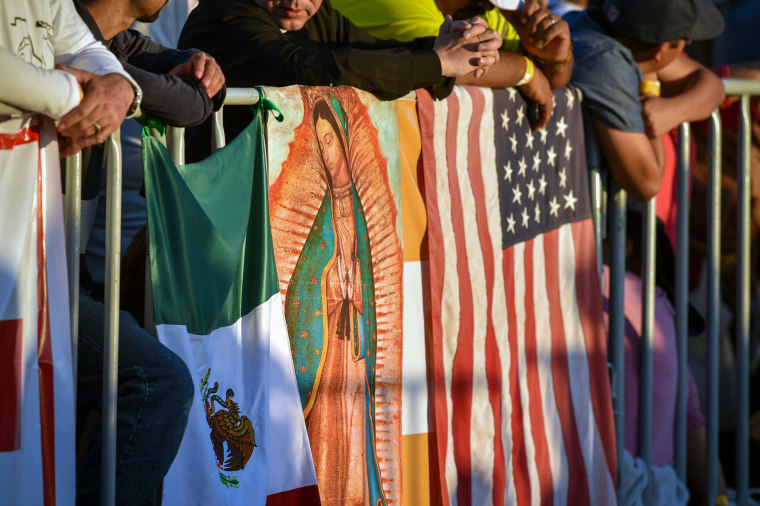
In 2019, on a trip to Central America, Pope Francis suggested that animosity toward migrants was driven by fear and “makes us crazy.” In 2022, he sympathized with migrant caravans trekking to the U.S.'s southern border seeking what he called “freedom and well-being.” In January 2025, he named a vocal ally of migrants to lead the Archdiocese of Washington.
More than 4 in 10 U.S. Catholics are immigrants or children of immigrants, according to Pew Research data.
On migration, Pope Francis did not shy away from political controversies. He was a fierce critic of President Donald Trump’s immigration policies, saying on a 2016 visit to Mexico that "a person who only thinks about building walls, wherever they may be, and not building bridges, is not Christian. In January he called Trump's plans for mass deportations “a disgrace.”
In a February letter to U.S. bishops, the pope criticized the criminalization of migrants and deportations, warning, “What is built on the basis of force, and not on the truth about the equal dignity of every human being, begins badly and will end badly.”
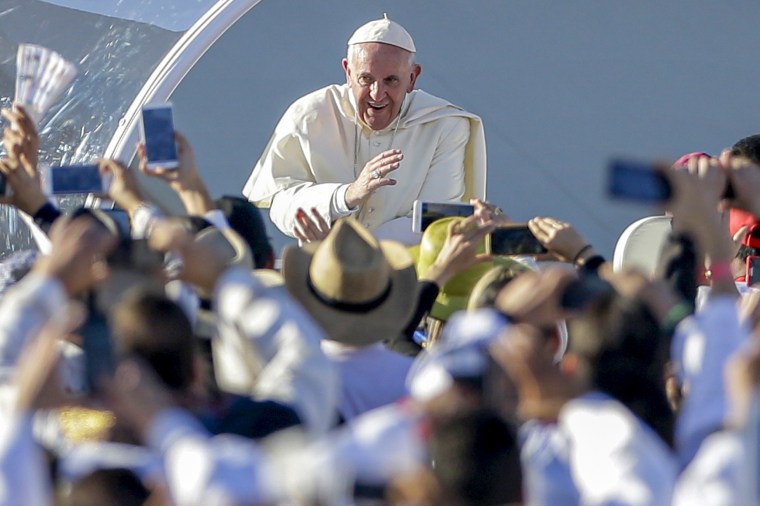
In the U.S., Pope Francis was able to connect because of his awareness of Latino communities, said Ellie Hidalgo, co-director of Discerning Deacons in Miami, a Catholic group that advocates for female deacons. “Francis understood Latin American cultures, religious traditions and popular devotions. He understands the faith of the people and their resilience, as well as the violence, the poverty and suffering that can drive one’s decision to leave their country.”
A forceful stance in support of immigrants
Pope Francis has generally been viewed positively by U.S. Latino Catholics. Almost 8 in 10 viewed him mostly or very favorably, Pew found in its 2024 study, with a plurality describing him as representing major change in the direction of the Catholic Church.
This popularity stands in contrast to the clear majorities of U.S. Latinos and Latin Americans who favor positions opposed by the Catholic Church, such as allowing Catholics to use birth control, allowing priests to marry and allowing women to become priests.
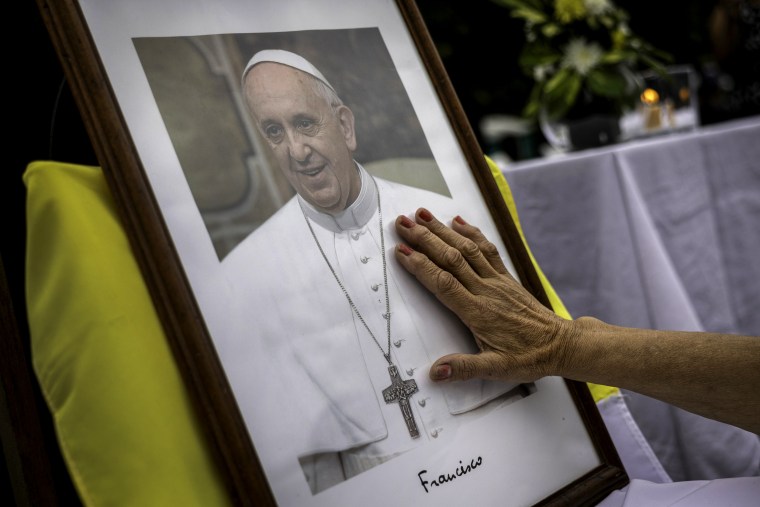
Yunuen Trujillo, a lay minister and author in Los Angeles, said that Pope Francis made the Catholic Church more inclusive for LGBTQ+ people.
In 2013, when asked about gay priests, Pope Francis famously said, “If someone is gay and he searches for the Lord and has good will, who am I to judge?"
"We shouldn’t marginalize people for this,” the pontiff said.
"Just by acknowledging our existence," Trujillo said, "and speaking about us in a positive light many times, that is a big change in perspective."
'A good pope'
In his 12 years as pope, Francis made multiple visits to the Americas, including trips to Brazil (2013), Ecuador, Bolivia and Paraguay (2015), Cuba and the U.S. (2015), Cuba and Mexico (2016), Colombia (2017), Chile and Peru (2018) and Panama (2019).
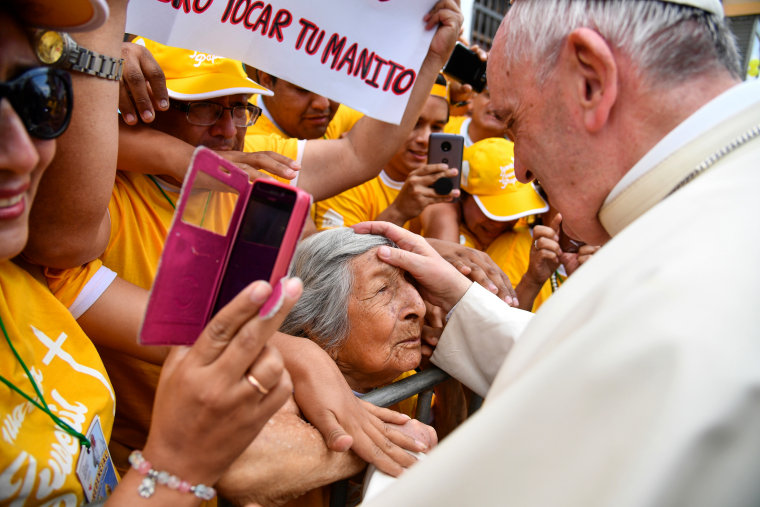
He addressed issues pertaining to these countries, such as urging Colombia’s government and guerrillas to agree to a peace deal and condemning drug cartels in Mexico and urging young people not to join them.
Francis’ populist style at times alarmed some conservatives and traditionalists. In 2015, returning from a visit to Cuba, he defended his remarks on climate change, capitalism and other issues, saying, “I am certain that I didn’t say one thing more than wasn’t in the doctrine of the church.”
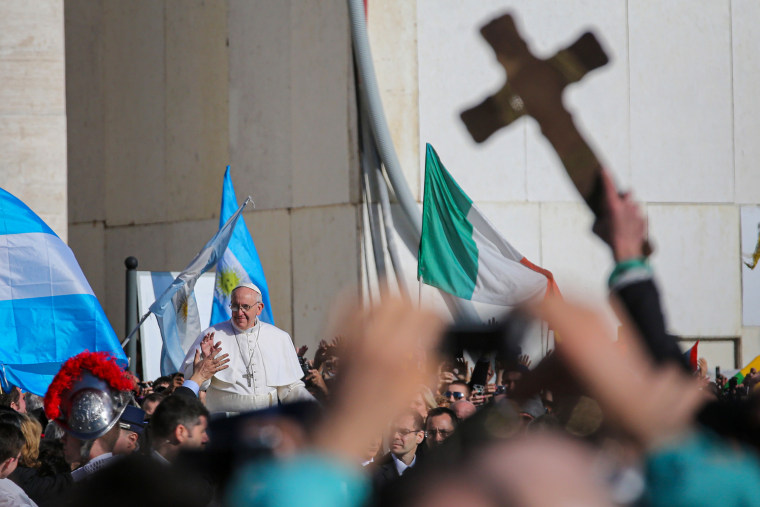
Trujillo pointed out at the way the pope introduced himself to the world in 2013, coming to the papal balcony in black shoes rather than the traditional red Prada shoes. “It showed that he wanted to be like regular people. Just seeing someone who speaks Spanish, in the leadership role, was important to Latinos who wanted to feel closer to the church.”
And although change and reforms may be slow, she feels that Francis moved the Catholic Church in the right direction. “This was a good pope.”
